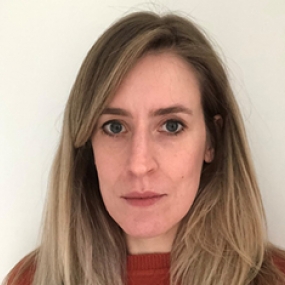Training in a global pandemic: My story

Elizabeth Yates is an anaesthetist registrar in Milton Keynes. Here, she details her experiences of working through the pandemic, from responding to the first wave to catching COVID-19 and balancing home life with exams.
When I returned to work from maternity leave in February 2020, I had no idea what the next 12 months would bring. I was returning as a less than full time (LTFT) anaesthetic trainee and preoccupied with how I would juggle my on-call shifts with childcare and a husband on a full time acute internal medicine / intensive care medicine rota. COVID-19 was a hot topic of conversation but we had no cases where I was working. At that time, nobody was sure if it would turn out to be a problem in the UK.
When the first wave hit, our hospital felt well prepared. We had an online meeting with the whole department to discuss our escalation plans and how it would affect each tier of doctors.
I was worried about how I would manage childcare as my husband’s rota had escalated to mostly long days and nights. However, the surge rotas at my hospital were developed by doodle poll, so I was able to work more nights and weekends to avoid rota clashes. Life was full on but manageable.
When I returned to work from maternity leave in February 2020, I had no idea what the next 12 months would bring.
Then in April, within 24 hours of each other, my husband and I spiked high temperatures and subsequently tested positive for COVID. We were lucky in that our son never developed symptoms and despite feeling awful we were able to look after him and ourselves at home. Around this time, we learned that the College would be unable to run my Final SOE and his FFICM exam. This was both a gift and a curse, as our shifts and childcare responsibilities meant there had been no time to revise. But I knew this would also hold me back from progressing in my training.
As cases reduced following the first lockdown, elective operating lists restarted and there was a scramble to get as many WBA and modules signed off before the summer ARCPs. These were done remotely, and an outcome issued via email. In some ways this was less stressful, but I felt as though it would have been a nice opportunity to discuss my progress after my first six months at LTFT. I received an outcome 10.1 (training delayed by COVID 19 but it is safe for the trainee to progress to the next stage) at ARCP, but I still had plenty I would need to get signed off before the end of the year and an exam to pass.
When cases dropped within my hospital, and the ITU was no longer on a surge rota, I started revising for the Final SOE. This was going to be no mean feat with a toddler at home, but the need to avoid unnecessary face-to-face contact had led to the widespread use of MS Teams in my hospital.
As the trainee teaching lead, I was already facilitating our local FRCA teaching via video call with trainees dialling in from home or areas of the hospital. There were four local trainees applying for the exam, but due to the previous cancellation there was a priority system and only three of us were able to secure a place.
We set up a spreadsheet that the whole department could access and asked the consultant body to book slots and viva with us in the evenings or at lunchtime. This was fantastic for me; I could work around nursery collections and bath time and join when I was able. We worked hard and despite rarely seeing each other in person, developed a real team spirit.
The exam itself was conducted over Practique with holding rooms on Zoom. It should have felt very strange but sitting at my kitchen counter where I had revised for countless evenings, wearing my smart shirt, smart-ish trousers and slippers, I felt a reassuring sense of familiarity. The revision paid off and not long before Christmas I was thrilled to find out I had passed.
I moved to tertiary centre training this February and while we are starting on a surge rota and covering ITU instead of theatre, the inpatient cases are falling, and the numbers of people being vaccinated are increasing daily. I hope that I will be able to spend more of the next year in theatre but only time will tell.
Dr Elizabeth Yates
